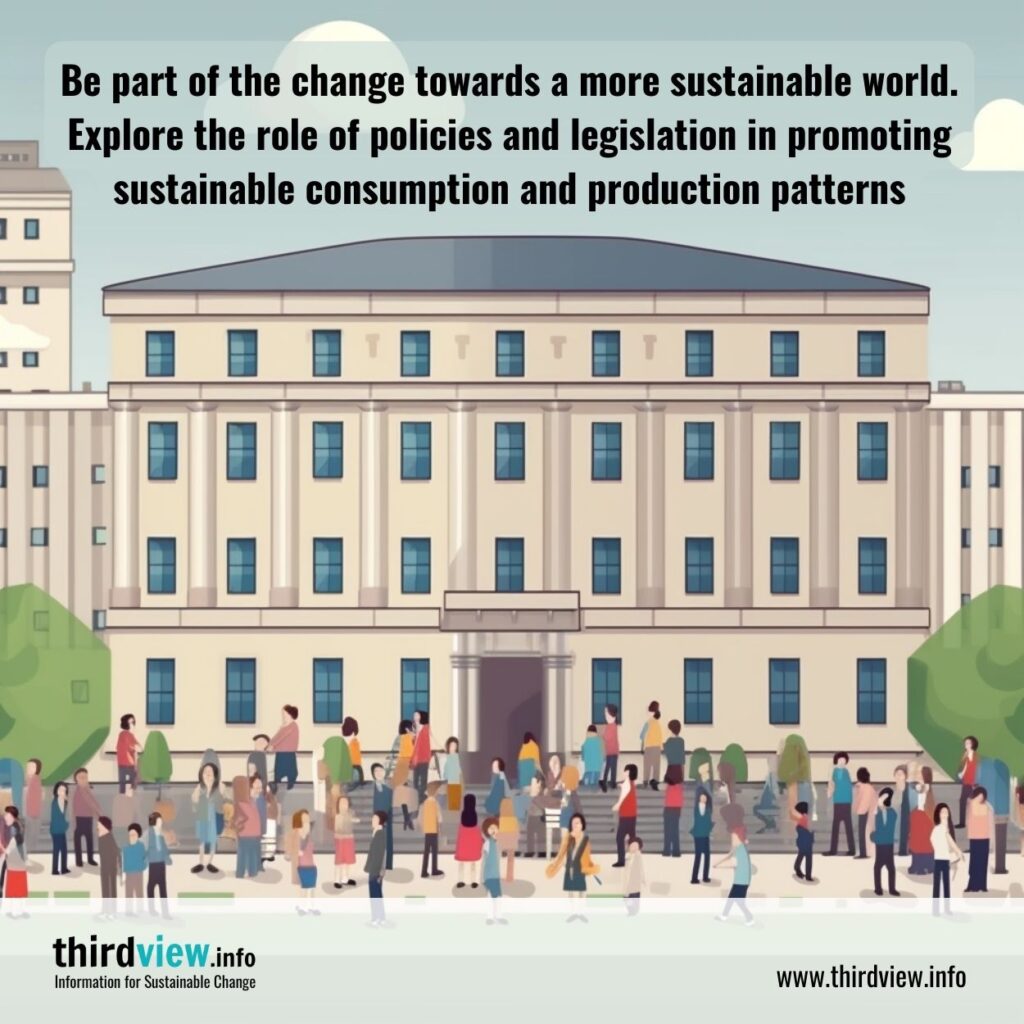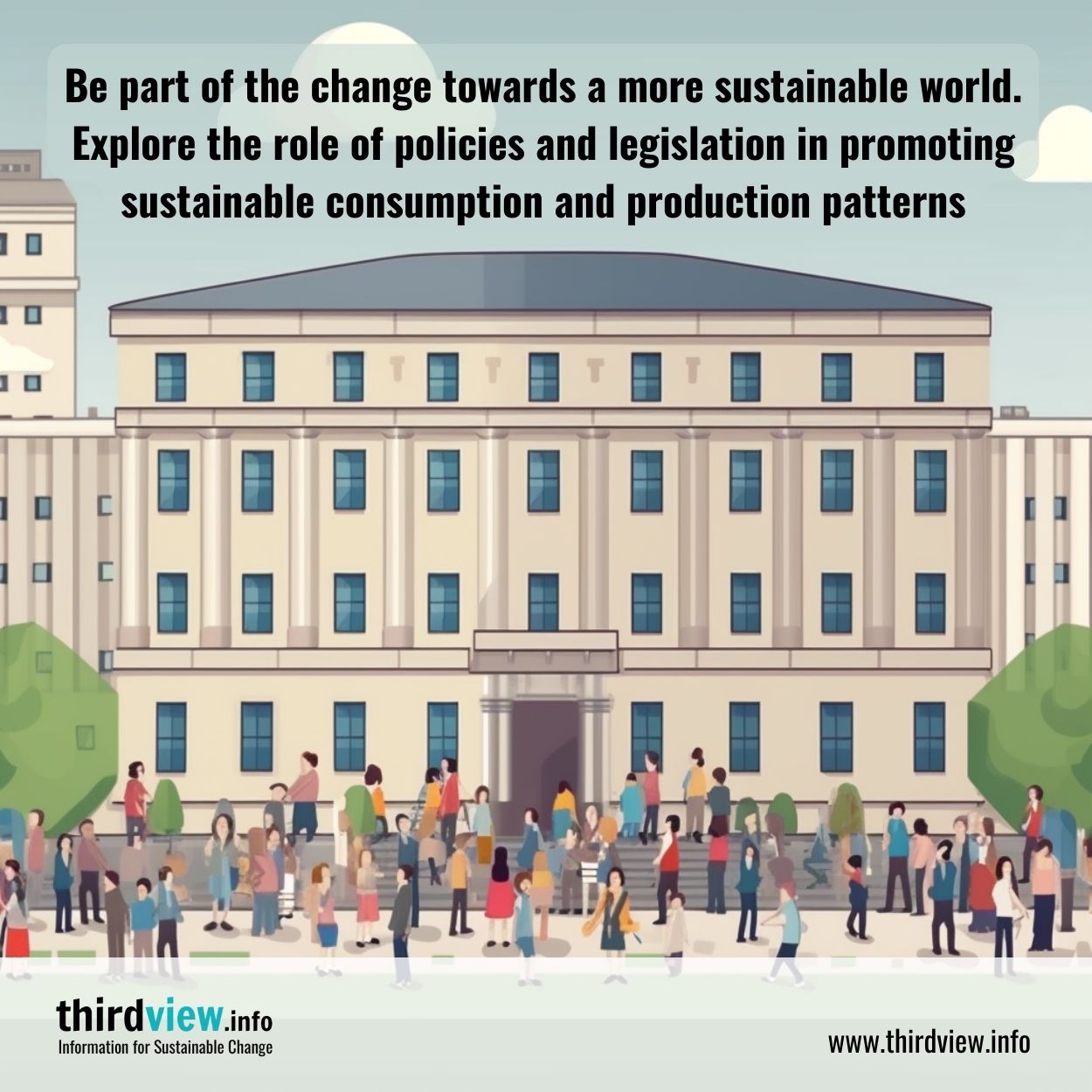In recent years, discussions about sustainability and environmental issues have become more prevalent than ever. The global community has recognized that we need to work towards a more sustainable future for our planet, and that means paying attention to how we consume and produce goods and services. Policies and legislation play a crucial role in promoting sustainable consumption and production patterns, but what can we do to make them more effective? In this blog post, we will explore some ways in which we can foster sustainable consumption and production patterns through policies and legislation.
Encourage renewable energy sources
Legislation that promotes the development and use of renewable energy sources can go a long way in promoting sustainable consumption and production. Such legislation may incentivise the use of renewable energy technologies, such as solar or wind power, which can help reduce greenhouse emissions produced by natural gas or coal. Governments can put in place policies to support a shift towards more sustainable energy sources, including tax credits, subsidies, and other incentives that can help reduce the cost of transitioning towards cleaner energy sources.
Support green investments
Another way to encourage sustainable consumption and production is through green investments. An example of such investment is the installation of energy-efficient appliances or the use of sustainable packaging materials. Government policies can increase the opportunities for green investments by offering subsidies or other financial incentives. Policies that prioritize transparency in the supply chain can also help to create a level playing field for businesses, allowing them to make informed decisions based on social and environmental considerations.
Promote circular economy
The adoption of a circular economic model can help shift consumption and production practices towards a more sustainable direction. A circular economy is one where products and materials are reused, repurposed, or regenerated, and where waste is minimized. Legislation and policies can promote the adoption of a circular economy by setting targets for waste reduction, incentivising the reuse of materials, and promoting recycling or composting programs.
Develop green standards
The development of green standards can go a long way in promoting sustainable consumption and production patterns. Green standards set guidelines for production practices, such as agricultural practices, which are sustainable and environmentally friendly. These standards may also include the development of eco-labels, which can help consumers to make informed choices about the products they purchase. Governments can support the development of such standards by engaging with stakeholders in the development process and requiring compliance from businesses.
Educate citizens
Finally, education plays a crucial role in promoting sustainable consumption and production patterns. Citizens play a key role in driving change towards more sustainable practices, and policies and legislation can be used to promote education about sustainable living. This can be done through initiatives such as public awareness campaigns, education programs, or tools such as labelling that informs consumers about the environmental impact of the products they purchase.
Promoting sustainable consumption and production patterns is crucial for a sustainable future. Policies and legislation can play a central role in driving change towards more sustainable practices. This can be achieved through various initiatives, including promoting renewable energy sources or green investments, promoting the adoption of a circular economy, developing green standards, and educating citizens. Together, these policies and initiatives can help to ensure that we are moving towards a more sustainable future.


